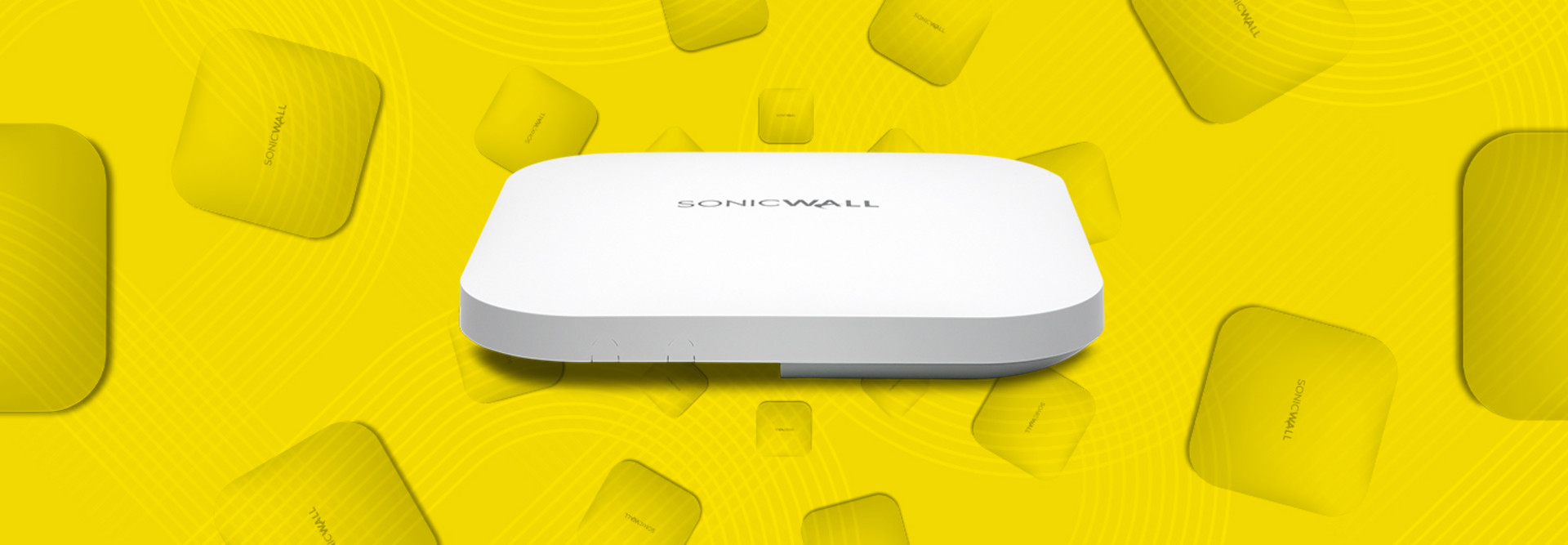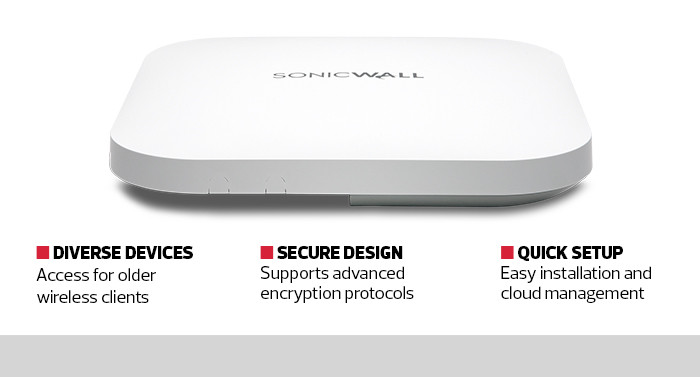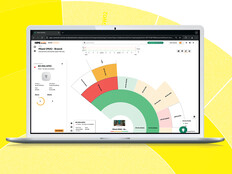Considering how long wireless technology has been available, most businesses have probably already invested in some form of wireless networking for their employees and customers. But older wireless technology was designed to support only a fairly limited number of users.
While it’s still possible to connect everyone using older technology, it requires a lot of access points, layered channels and constant tuning — and even then, the network will probably have dead zones and experience slowdowns at peak hours.
Wi-Fi 6 changes that by integrating new technologies designed to enhance wireless signals, even in heavily congested areas. The new SonicWave 641 access point by SonicWall is a great example.
Click the banner to learn how your organization can benefit from a hybrid cloud environment.
Hidden inside the unassuming device, which looks like a small smoke detector, are dual radios and multiple antennas that can serve fast wireless signals to older devices using the 2.4-gigahertz band and connect to newer ones with the 5GHz spectrum.
Device setup is a breeze. The AP is designed to be easily mounted on a wall or ceiling or simply placed on a shelf. It supports Power over Ethernet, so it doesn’t require a power cord, just a PoE-compatible network cable to complete the setup.
Once the AP is physically placed, installation can be completed through the cloud. Any nontechnical staff can position the APs while the IT team configures everything remotely.
SPECIFICATIONS
Device Type: 802.11ax wireless AP
Radios: Dual-band 5GHz and 2.4GHz radios
Security: Supports both WPA2 and WPA3 encryption
Dimensions: 1.5x7.9x7.9 inches
Weight: 30 ounces
SonicWave 641 Outperforms Wi-Fi 5 Access Points
I tested the performance of the SonicWave 641 in my Wi-Fi 6 testing lab, which consists of a broad mix of older and new wireless-capable devices. First, I looked at the performance of 20 devices connected to an older, Wi-Fi 5 AP.
Not surprisingly, I experienced the typical slowdowns and disconnects when trying to transfer multiple large files or engaging in bandwidth-intensive activities such as video streaming. Some devices even had trouble joining the network when the others were maxing out its capabilities.
After switching to the SonicWave 641 AP, all 20 devices quickly connected. Older devices used the 2.4GHz band, while newer ones connected using a 5GHz signal. Once every device was logged in, the automatic management functions of the SonicWave 641 constantly optimized the bandwidth for each device it was serving.
If the network became overloaded, easy-to-configure rules allowed priority applications, users and groups to experience little to no disruption. All told, the SonicWave Wi-Fi 6 641 AP was at least three times more efficient than APs using only Wi-Fi 5 technology.
The SonicWave 641 AP is also highly secure and supports the most advanced encryption protocols. Connecting its PoE cable to a SonicWave smart switch or network security appliance provides even more security across the entire network of SonicWave APs.
DIVE DEEPER: Should small businesses make the switch to Wi-Fi 6?












